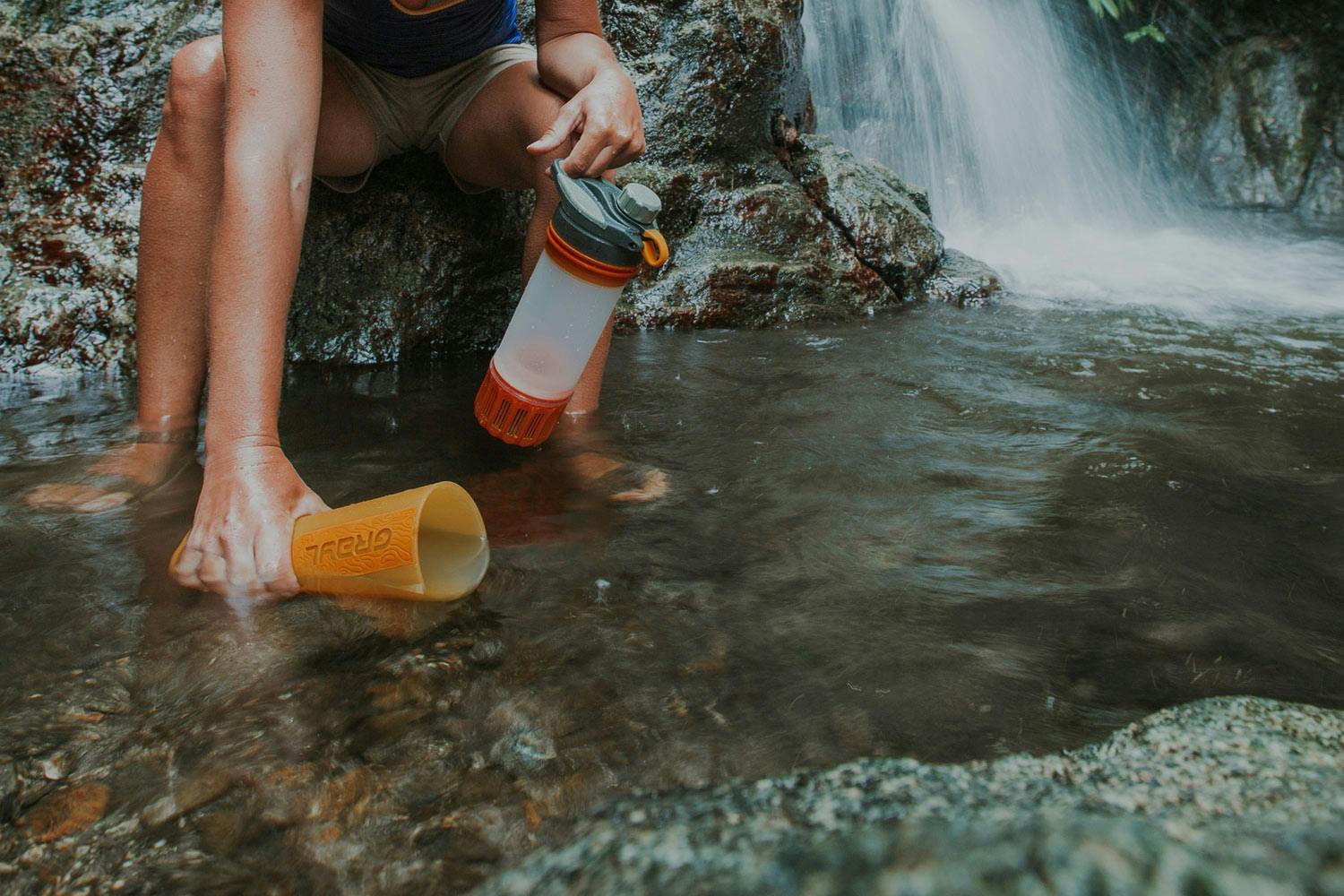The Traveler’s Water Bottle that Allows you to Drink from Anywhere
Reduce plastic consumption while traveling by investing in a portable purifier.
It’s a never-ending battle: me, traveler, versus plastic water bottles.
It’s one I’ve lost too often. And one that doesn’t always cross my mind until I draw yellow water from a faucet, reminding me the local rule of thumb is not to drink untreated tap water. If I break it, the consequences — nausea, vomiting, diarrhea, or worse diseases like cholera, typhoid, and dysentery — won’t be pretty. For years, I felt I had no choice but to buy bottled water, if it wasn’t already being shoved in my face by well-meaning tour guides and servers at restaurants and in hotels.
But consuming bottled water isn’t sustainable or cheap. Tap water is typically free, whereas travelers can easily spend hundreds of dollars on water bottles in airports, cafes, and gas stations (I surely have). Plus, most bottles aren’t recycled — 79% of plastic waste ends up in landfills or the environment, making its way into waterways and oceans.
Luckily, a growing number of portable purifiers — such as LifeStraw’s Go bottle, Larq’s self-cleaning bottle, Sawyer’s Micro Squeeze Water Filtration system, and Grayl’s new Geopress bottle — provide a way for travelers to save money while cutting back on single-use plastics. As a travel writer on the road 335 days a year, I’ve tested dozens of portable purifiers since 2016, turning to new products as they hit the market in hopes of finding a solution that could keep up with my wanderlust.
In India, I tested the LifeStraw Go bottle, even taking the smaller kid’s version that was easier to throw into daypacks. On a horseback expedition in Mongolia, I relied on the Grayl Ultralight to purify river water, our only source of water for 10 days, and watched as others grew sick from water they’d incorrectly purified with tablets and boiling. In Mexican hotels, I relied on the Sawyer Mini to purify tap water I didn’t trust even though it had been filtered for tourists.
In the process, I learned different trips require different types of purifiers. Treating water from a river, where filtering out dirt and grass is as important as purification, is different from treating tap water, where a purifier that removes bacteria and viruses would suffice.
Different trips require different types of purifiers. Treating water from a river is different from treating tap water.
Lately, whether I’m in a city or the remotest corners of a country, I’ve found myself relying on Grayl’s new Geopress model. Easy to use and designed with adventurers in mind, the bottle filters 24 ounces of water in 8 seconds to meet the US Environmental Protection Agency’s national drinking water standards. Its replaceable water purification cartridge lasts 350 uses, so you can go almost a year without replacing it.
Soon, I’ll travel to Mongolia, where the Geopress will be my only source of drinking water, as I filter water from rivers across the Steppe. It’s crucial I carry a purifier I trust, because I’m making this journey on a motorcycle and camping along the way. I’ll likely go days at a time without access to clean drinking water.
So, how exactly do bottles like this work?
Portable purifiers employ technologies ranging from ultraviolet light that kills bacteria and viruses, to charcoal and fiber filters that don’t allow bacteria and parasites through. Most of these bottles are made of plastic that may not be recycled once travelers are done with them, but moving away from single-use plastics is a step in the right direction.
The Grayl bottle has four parts: an outer shell you fill with untreated water, a replaceable purifying cartridge you press into the outer shell to filter water into an inner shell, and a lid with a drinking spout that doubles as an air vent during purification. The purification cartridge is made of ceramic fibers that block particulates and contain two technologies: positively charged ions that pull out pathogens — like rotavirus, E. coli, or giardia — and powdered activated carbon, which absorbs heavy metals and chemicals.
All this is in a bottle that weighs less than a pound and saves me time and money, while decreasing my environmental impact. It makes me smile when I think about all the bottled water I don’t have to buy.
Grayl Geopress, US$90
Print Issue: Summer/Fall 2019
Print Title: Purity Test
